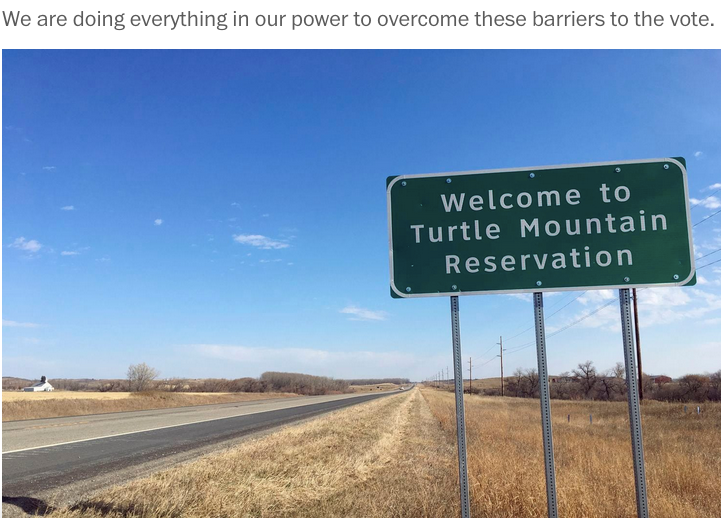When North Dakota’s strict new voter-identification law went into effect for the last election, people on the reservation of the Turtle Mountain Band of the Chippewa Indians were bewildered. We used to be able to cast a ballot in state, federal and tribal elections without an ID if we signed an affidavit or a poll worker vouched for us. Then the legislature passed a law requiring an ID with a residential address at the polls.
The state has a total voting-eligible population of 580,000, and about 70,000 lack the right kind of ID. The law requires that these IDs have street addresses printed on them and specifically bans using a P.O. Box. This was clearly designed to target Native Americans. Most tribal IDs don’t have this information. In fact, many tribal citizens don’t have residential mailing addresses in the first place — the U.S. Postal Service does not provide residential delivery to their rural communities.
Some of my earliest memories as a kid growing up on the reservation involve going to the post office to pick up mail from our box. I could tell you exactly where I lived — to get to my grandparents’ house, for example, you went halfway to Belcourt Lake and made a left at the church — but we didn’t have an official street address. Nobody did. Our reservation measures about 6 by 12 miles and is home to about 19,000 people. Most buildings don’t have numbers, and most streets don’t have signs. Everybody knows everybody. We’re a tightknit community and a sovereign nation. We have our own way of doing things. It seems absurd that we should have to call some county official with no connection to the tribe, hundreds of miles away, and get assigned an address by some arbitrary system, just to exercise our basic rights. After all, when members of our tribe signed up to serve in the military, the armed forces didn’t require that information.




